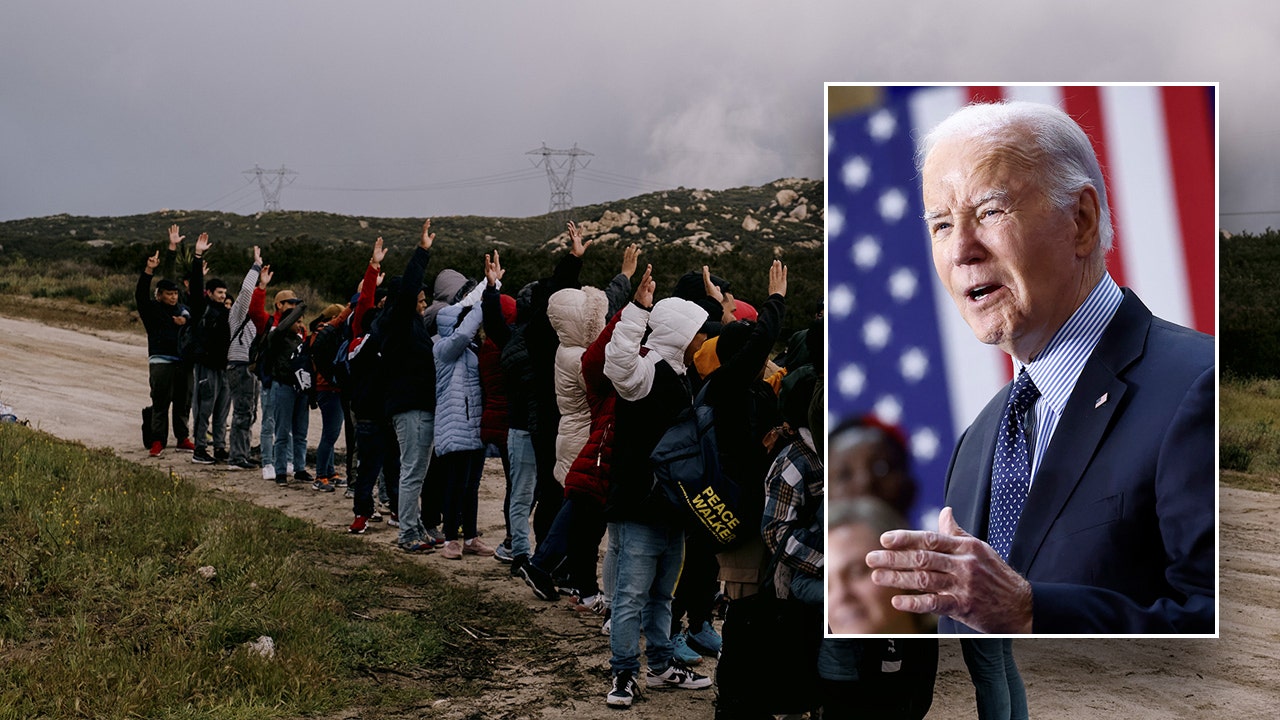Politics
Conservative group slaps top federal agency with lawsuit over Biden-era handling of illegal immigrants

Conservative Group Sues DHS for Transparency on Criminal Illegal Immigrants
In a significant legal move, the Center to Advance Security in America (CASA), a conservative advocacy group, has filed a lawsuit against the Department of Homeland Security (DHS) seeking detailed records about the handling of criminal illegal immigrants under the Biden administration. This lawsuit underscores the ongoing debate over immigration policies, particularly concerning transparency and public safety. The lawsuit, filed in the U.S. District Court for the District of Columbia, aims to compel DHS to release internal communications and data related to the release of illegal immigrants with criminal backgrounds. CASA’s director, James Fitzpatrick, emphasizes the importance of transparency, stating that the American public deserves clarity on how the government manages illegal immigrants, especially those with serious criminal convictions. This case highlights the broader tension between immigration enforcement and civil liberties, as well as the challenges of balancing security concerns with humanitarian considerations.
The Data and Its Implications
The lawsuit stems from a Freedom of Information Act (FOIA) request submitted by CASA in October, seeking records related to the release of data on noncitizens with criminal backgrounds. The data, initially released to lawmakers in September, revealed startling statistics: 425,431 convicted criminals and 222,141 individuals with pending criminal charges were on Immigration and Customs Enforcement’s (ICE) non-detained docket. These numbers include serious offenses such as homicide, sexual assault, and kidnapping. For instance, the data showed 13,099 individuals convicted of homicide, 15,811 with sexual assault convictions, and 2,521 with kidnapping convictions. Additionally, there were significant pending charges, including 1,845 for homicide and 42,915 for assault. These statistics have raised concerns among lawmakers and advocacy groups about public safety and the potential risks associated with releasing individuals with criminal histories into communities.
Request for Records and Subsequent Lawsuit
CASA’s FOIA request sought internal communications, meeting records, call logs, and media communications related to the data’s release. However, DHS failed to respond within the legally required timeframe, prompting CASA to file the lawsuit. The group argues that DHS’s inaction constitutes a constructive exhaustion of administrative remedies, necessitating judicial intervention. CASA’s lawsuit is not just about obtaining records; it’s about ensuring accountability and transparency in how the federal government manages illegal immigration, particularly concerning criminal offenders. By compelling DHS to disclose internal communications, CASA hopes to shed light on the decision-making processes behind the release of these individuals and whether adequate measures are in place to protect public safety. The lawsuit also raises questions about the broader implications of immigration policies and whether they align with the stated goals of ensuring national security and public well-being.
Response from DHS and Political Context
DHS has not yet responded to the lawsuit, but the agency has previously defended its handling of the data, arguing that it has been misinterpreted. The agency noted that the data spans decades and includes individuals who are incarcerated or in federal, state, or local custody, not just those released into communities. However, the lawsuit and surrounding debate highlight the politicized nature of immigration enforcement. The Biden administration has faced criticism for its approach to immigration, with opponents arguing that its policies are too lenient and pose risks to public safety. Conversely, the administration has emphasized the need for a balanced approach that considers both enforcement and humanitarian concerns. The lawsuit also draws attention to the stark contrast between the Biden and Trump administrations’ immigration policies, with the latter adopting a more hardline stance, including mass deportations and stricter detention practices.
Impact on Communities and the Role of Transparency
The release of illegal immigrants with criminal backgrounds has significant implications for communities across the United States. While advocates for immigrant rights argue that many of these individuals pose no immediate threat and deserve due process, others express concerns about the potential risks to public safety. Transparency in this context is crucial, as it allows the public to understand how the government is managing these cases and whether adequate safeguards are in place. CASA’s lawsuit, by seeking to uncover internal communications and decision-making processes, aims to ensure that the government is held accountable for its actions. The broader debate over immigration enforcement underscores the need for policies that balance security concerns with humanitarian values, ensuring that the rights of all individuals are respected while protecting the safety and well-being of communities.
Conclusion and the Broader Immigration Debate
The lawsuit filed by CASA is a microcosm of the larger immigration debate in the United States, highlighting the complex interplay of legal, political, and social factors. While the immediate goal of the lawsuit is to compel DHS to release specific records, its broader implications extend to the ongoing conversation about how the nation approaches immigration enforcement. The data at the heart of the lawsuit serves as a reminder of the challenges faced by law enforcement and immigration agencies in managing criminal illegal immigrants. However, it also underscores the need for transparent and accountable decision-making to ensure that policies are both effective and just. As the lawsuit progresses, it will likely draw further attention to these issues, emphasizing the importance of finding a balanced approach to immigration that prioritizes public safety while upholding the principles of fairness and humanity.